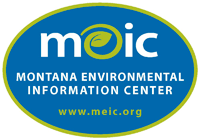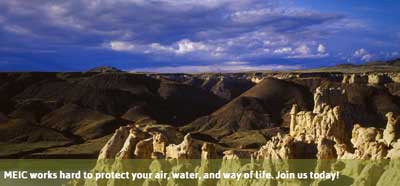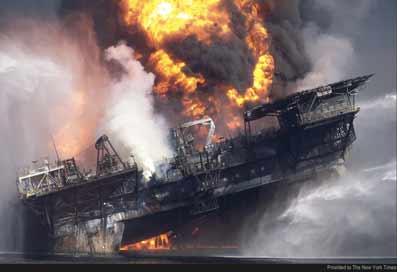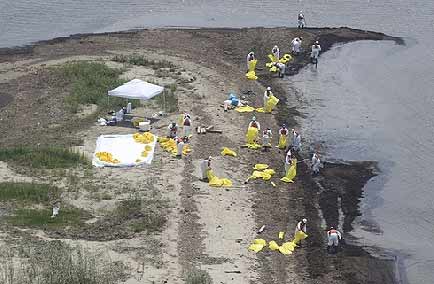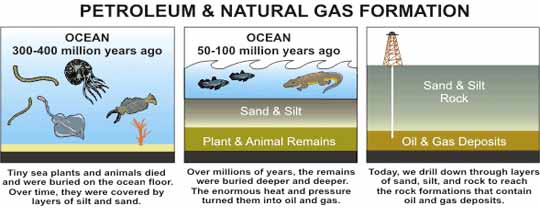Join us on September 25-27 in Washington, DC for Appalachia Rising!, a national response to the unmitigated destruction of Appalachia's mountains, air and water through mountaintop removal coal mining. Appalachia Rising! will follow a long history of action for a just and prosperous Appalachia.
Appalachia Rising, an event which will take place in Washington DC, September 25-27, 2010 is a national response to the poisoning of America’s water supply, the destruction of Appalachia’s mountains, head water source streams, and communities through mountaintop removal coal mining. It follows a long history of social action for a just and sustainable Appalachia.
Appalachia Rising strives to unite coalfield residents, grass roots groups, individuals, and national organizations to call for the abolition of mountaintop removal coal mining and demand that America’s water be protected from all forms of surface mining.
Appalachia Rising -building community/labor alliances from Anne Lewis on Vimeo.
Government Agency Watchdog.
Montana Environmental Information Center (MEIC) is Montana’s environmental “watchdog.” It has successfully influenced state and federal agencies for more than three decades, monitoring issues from old growth forest protection, to standards for coal bed methane development, to air and water pollution permits. When all else fails, MEIC utilizes litigation to ensure that environmental laws are complied with.
Promoter and Protector of the Constitution. MEIC works hard to uphold the valuable rights afforded by Montana’s Constitution, including the inalienable right to a clean and healthful environment, the right to participate in and know about government operations, and the right to have all lands disturbed by the taking of natural resources reclaimed.
Respected Media Source. MEIC has a long history of working with the mass media to raise public awareness and understanding of key environmental issues. Through writing opinion pieces and making its staff available to the press, MEIC makes sure that critical issues receive the attention they deserve. MEIC provides a nonpartisan perspective, and is consistently quoted in a variety of Montana and national newspapers and other media.
Grassroots Advocate and Public Educator. MEIC assists individuals and local organizations facing environmental problems by providing information, organizing and tactical advice, and technical assistance. MEIC also has an active membership ready to submit comments, attend hearings, and go to pubic rallies when needed."
The Marcellus Shale Coalition, has just released a video promo that would make Leni Riefenstahl proud. A more comprehensive myth-busting is forthcoming.
For now, read "Marcellus Shale: Asking Tough Questions of the Oil and Gas Companies" by Claudia Detweiler, "Lies and Broken Promises" by Jon Bogle, which both expose the bias and inaccuracies the "Penn State Report" and other economic impact studies.
And read this assessment by Robert W. Howarth, of Cornell University, who writes, "natural gas far less attractive than other fossil fuels in terms of the consequences for global warming."
See: Natural Gas Drillers Protest Nomination of Fracking Critics for EPA Review Panel
A leading congressional critic of shale drilling is scolding the Obama administration for failing to try to slow drilling in the Northeast's Marcellus Shale.
Rep. Maurice Hinchey (D-N.Y.) fired off a letter (pdf) yesterday to the commander of the North Atlantic Division of the Army Corps of Engineers, Brig. Gen. Peter "Duke" DeLuca. DeLuca represents the federal government on the little-known but powerful Delaware River Basin Commission (DRBC), and he rebuffed Hinchey's request that he use his vote to block gas drilling there until a lengthy study is completed.
See: Keystone XL Pipeline - Issues
Both Hinchey and Johanns have been rebuffed by the President and the State Department. Might this be telling us about the direction the Administration is taking in regards to its Energy Policy? nz
See: Obama Admin Rejects Timeout for Natural Gas Drilling in N.Y., Pa.
See: What President Obama should have said about natural gas.
See: In Pa., Rove tells Marcellus shale drillers: Expect 'sensible regulation'
On May 22, 2010 President Obama established the National Commission on the BP Deepwater Horizon Oil Spill and Offshore Drilling through Executive Order 13543 issued on May 21, 2010.
Presentation of the findings and recommendations in the National Oil Spill Commission’s final report on the causes of BP’s Gulf rig blowout and prevention of future disasters will be held 11am EST, Tues., Jan 11, 2011 at the The National Press Club: 529 14 St., NW, Washington DC.
Viewing: Credentialed press only. Public viewing available via live stream at www.OilSpillCommission.gov.
See: The Ceres Principles | Mixplex
See: Before the Big Spill | Mixplex
See: BP Deepwater Horizon Committee Hears From Oil Industry Executives | Mixplex
Natural Gas Informational Site by the U.S. Department of Energy (U.S. DOE). Includes articles on How Do We Get Natural Gas?, How Was Natural Gas Formed? Also article on Energy Explained, Use of Natural Gas, Delivery and Storage of Natural Gas, How Much Natural Gas Is Left.
The Independent Petroleum Association of America sent a letter (pdf) to EPA today highlighting two critics on the list of 82 potential panelists.
"Unfortunately, a number of nominees' past comments betray a strong and unambiguous antipathy toward shale development in general, and hydraulic fracturing in particular," IPAA President and CEO Barry Russell wrote.
The letter singles out two critics -- Theo Colborn and Robert Howarth. It does not give their names, but IPAA's detailed complaints about the two identify them.
Colborn is a Colorado zoologist and pharmacist whose group, TEDX — The Endocrine Disruption Exchange, has sought to document the damage that fracturing can do to water and human health. IPAA said she authored a "white paper" that called for federal regulation of fracturing.
Howarth is a Cornell University professor who issued a three-page draft report in April saying that shale gas production and use may generate as much greenhouse gas emissions as production and use of coal. Russell's letter said it was "riddled with errors."
See: U.S. EPA Initiates Hydraulic Fracturing Study | Meeting | EPA Science Advisory Board (SAB)
See: 2011 EPA Hydraulic Fracturing Study Plan Review Panel Selections.
See: Cornell’s Howarth Warns EPA on Shale Gas Greenhouse Footprint
Truthout is a source of independent journalism focusing on under-covered issues and uncoventional thinking.
In papers everywhere we hear arguments such as the one that appeared recently in the Rochester (NY) Business Journal, in an article by economist Raymond J. Keating, under the heading "N.Y. is missing out on economic opportunity."
Keating wrote, "Environmentalists are claiming that hydraulic fracturing threatens groundwater supplies and are using anecdotal evidence to support their claims. Yet years of evidence have demonstrated that the fracking process is safe."
This is not just misleading; it's artful misuse of the language. Or, as my mother would have put it in her habitually blunt way, it's a lie...
...If they have nothing to hide, and there is no danger, why do they keep the ingredients of their toxic fracking stews a secret? Why does the public not know what's in them? How can Keating or anyone else claim it's "safe" if we don't know what they're using? Do we want New York to be the next Gulf? Do we want to just trust the drilling companies to do the right thing, as we seemed to trust BP to manage a spill without adverse consequences?
Furthermore, do New Yorkers want their beautiful state turned into an industrial zone, a la eastern Colorado, huge swaths of Wyoming, much of Texas and Louisiana, and West Virginia? Take a drive to Northeastern Pennsylvania and see what the countryside looks like just a few years after horizontal fracking began there.
Well over half of these United States are in peril from fracking. This is simply nuts. It's not a local or regional, but a national issue (international now, as big gas deposits have been located, and in some cases are already being developed, in Poland, Austria, Hungary, Sweden, Ukraine, the United Kingdom, in Canada, China, and India. (Japan and other countries are buying into gas-drilling rights in the USA and elsewhere.)
See: Global Gas Flaring Identification in Google Earth
See: World of Shale
See: France to Unlock “Dirty” Oil Under Paris With Texan Help
But how clean is natural gas, really?
The Wilderness Society just released the new science and policy brief Doing it Right: Ensuring Responsible Natural Gas Development on Our Public Lands to address the question: How clean is natural gas?
Unfortunately, as the brief reveals, natural gas is not the panacea that its promoters would have us believe. Consider these facts:
Natural gas is only 30 to 50 percent cleaner burning than coal.
Natural gas is still a fossil fuel and our current use of it contributes about 20 percent of U.S. greenhouse gas emissions.
The processing, infrastructure, and burning of natural gas releases methane, a greenhouse gas 30 times more potent than carbon dioxide in terms of its heat-trapping ability.
Methane emissions from natural gas infrastructure are the third largest source of methane emissions in the United States, according to a September 2009 study by the Congressional Research Service.
Smog, or ground level ozone, has risen tremendously in areas with high levels of natural gas development. For example, in Sublette County, Wyo., after more than 3,100 gas wells were drilled in the past 10 years, ground-level ozone levels increased from background levels to those exceeding the Los Angeles basin in the winter of 2008.
The Wilderness Society is the leading American conservation organization working to protect our nation’s public lands -- the 635 million acres collectively owned by the American people and managed by our government.
Find out about our current conservation campaigns and how you can get involved.
Read more about the founding, history and role of science at The Wilderness Society.
The Natural Resources Defense Council (NRDC) has 1.3 million members and access to the expertise of more than 350 lawyers, scientists and other professionals.
See: Endocrine Disruptors
What is an endocrine disruptor?
An endocrine disruptor is a synthetic chemical that when absorbed into the body either mimics or blocks hormones and disrupts the body's normal functions. This disruption can happen through altering normal hormone levels, halting or stimulating the production of hormones, or changing the way hormones travel through the body, thus affecting the functions that these hormones control. Chemicals that are known human endocrine disruptors include diethylstilbesterol (the drug DES), dioxin, PCBs, DDT, and some other pesticides. Many chemicals, particularly pesticides and plasticizers, are suspected endocrine disruptors based on limited animal studies.
Founded: 1970
Mission: To safeguard the Earth: its people, its plants and animals and the natural systems on which all life depends. Read more
-
Status: Not-for-profit, tax-exempt, membership organization
-
Staff: 300+ lawyers, scientists and policy experts
-
Supporters: 1.3 million members and e-activists
-
Offices: New York, Washington, Chicago, Los Angeles, San Francisco and Beijing
Related articles on the health aspects of environmental stressors.
See: TEDX — The Endocrine Disruption Exchange






